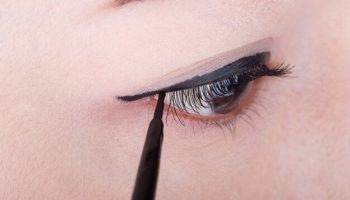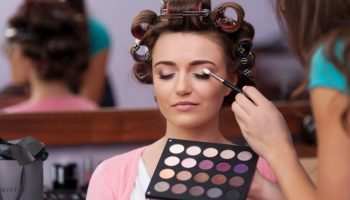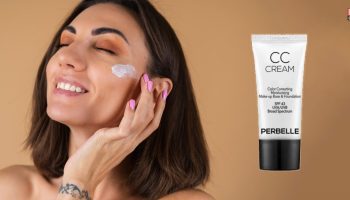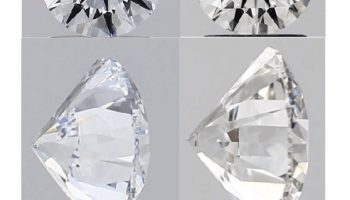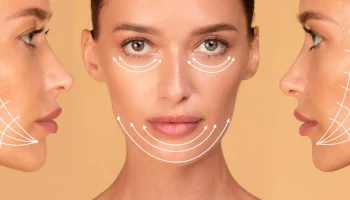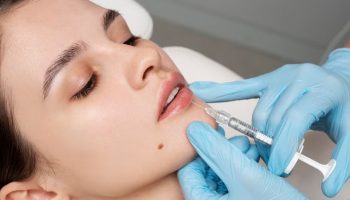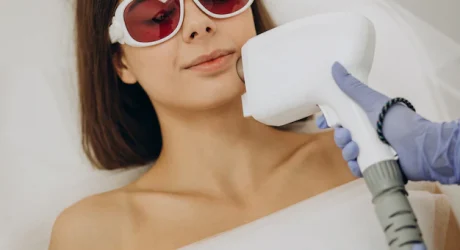The saying “you are what you eat” may be more than just a cliché. In fact, the link between nutrition and beauty is strong, with many studies showing that the foods you eat can directly impact your skin, hair, and overall appearance. If you’re looking to improve your complexion, strengthen your hair, or simply achieve a more youthful appearance, then eating the right foods may be the key. In this article, we’ll explore the link between nutrition and beauty, and how you can eat your way to glowing skin and strong hair.
The Importance Of Nutrition For Beauty

Before we dive into the specifics of how nutrition affects beauty, it’s important to understand why it’s so important. The fact is that your body relies on the nutrients found in food to function properly. When you eat a balanced diet rich in vitamins, minerals, and other essential nutrients, your body has the tools it needs to carry out its various functions, including repairing and renewing cells.
Skin and hair are no exception. These organs require a variety of nutrients to remain healthy, including protein, vitamin A, vitamin C, vitamin E, and various minerals such as zinc and selenium. When you consume these nutrients, your body can use them to repair and renew skin cells, promote collagen production, and even protect your skin and hair from damage caused by environmental factors such as pollution and sun exposure.
On the other hand, when you don’t consume enough of these essential nutrients, your skin and hair can suffer. For example, a lack of vitamin C can lead to dry, rough skin and slow down the production of collagen. A deficiency in vitamin A can cause dry, flaky skin and even hair loss. And a lack of protein can result in weak, brittle hair.
Overall, the key to achieving healthy, radiant skin and strong, beautiful hair is to consume a diet that’s rich in the nutrients your body needs to function properly.
Foods That Promote Glowing Skin
If you’re looking to improve the appearance of your skin, then the foods you eat can play a big role. Here are some of the top foods that promote glowing, healthy skin:
Fatty Fish
Fatty fish such as salmon, mackerel, and sardines are rich in omega-3 fatty acids, which are essential for maintaining healthy skin. Omega-3s can help to reduce inflammation in the body, which can lead to a more even skin tone and fewer breakouts. They can also help to keep skin moisturized, which can prevent dryness and flakiness.
Berries
Berries such as blueberries, raspberries, and strawberries are packed with antioxidants, which can help to protect your skin from damage caused by free radicals. Free radicals are unstable molecules that can damage cells and lead to premature aging. By consuming foods that are high in antioxidants, you can help to prevent this damage and keep your skin looking youthful and healthy.
Avocado
Avocado is a great source of healthy fats, which can help to keep your skin moisturized and supple. It’s also rich in vitamin E, which is an important antioxidant that can help to protect your skin from damage caused by the sun and other environmental factors.
Nuts And Seeds
Nuts and seeds such as almonds, sunflower seeds, and chia seeds are rich in vitamin E, which as we mentioned above, is a powerful antioxidant that can help to protect your skin from damage. They’re also a great source of healthy fats, which can help to keep your skin moisturized.
Sweet Potatoes
Sweet potatoes are a great source of beta-carotene, which your body converts to vitamin A. Vitamin A is important for maintaining healthy skin, as it can help to reduce dryness and flakiness.
Supplements For Glowing Skin And Strong Hair
While a healthy and well-rounded diet is the best way to provide your body with the nutrients it needs for healthy skin and hair, sometimes we may not get enough of certain nutrients from our diet alone. In those cases, supplements can help fill the gap and ensure that our bodies have all the necessary nutrients for healthy skin and hair.
Check out PricePro Pharmacy for the various supplements at affordable prices. Here are some supplements that can help promote glowing skin and strong hair:
Collagen: Collagen is a protein that’s essential for the health of the skin, hair, and nails. It provides structure and elasticity to the skin and helps prevent wrinkles and fine lines. As we age, our bodies produce less collagen, which can lead to sagging skin and wrinkles.
Collagen supplements can help boost collagen production and improve the appearance of the skin. Look for a collagen supplement that’s hydrolyzed, which means that it’s been broken down into smaller molecules for easier absorption by the body.
Omega-3 fatty acids: As mentioned earlier, omega-3 fatty acids are essential for healthy skin and hair. They have anti-inflammatory properties that can help reduce redness and inflammation in the skin, and they also help improve the skin’s barrier function, preventing dryness and flakiness. Omega-3 supplements can help ensure that you’re getting enough of these important fatty acids in your diet.
Biotin: Biotin is a B vitamin that’s essential for healthy hair, skin, and nails. It plays a crucial role in the production of keratin, which is the protein that makes up hair and nails. Biotin supplements can help strengthen the hair and nails and prevent breakage.
Vitamin C: Vitamin C is a powerful antioxidant that’s essential for healthy skin. It helps protect the skin from the harmful effects of UV radiation and environmental toxins, and it’s also important for collagen production. Vitamin C supplements can help boost the levels of this important nutrient in your body.
Vitamin E: Vitamin E is another antioxidant that’s important for healthy skin. It helps protect the skin from oxidative stress and has anti-aging properties. Vitamin E supplements can help ensure that you’re getting enough of this important nutrient in your diet.
Zinc: Zinc is a mineral that’s essential for healthy skin and hair. It helps to regulate oil production in the skin and has anti-inflammatory properties that can help reduce acne and other skin problems. Zinc supplements can help ensure that you’re getting enough of this important mineral in your diet.
Conclusion
It’s important to note that supplements should not be used as a substitute for a healthy diet. They should be used to complement a well-rounded diet that’s rich in vitamins, minerals, and other nutrients. Before taking any supplements, it’s always a good idea to talk to your doctor or a registered dietitian to make sure they’re right for you and to ensure that they won’t interact with any medications you may be taking.









